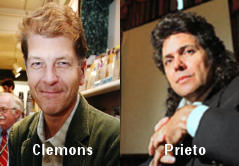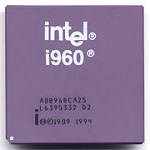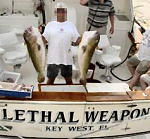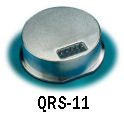 Steve Clemons, a Senior Fellow at the New America Foundation and a popular blogger who blogs at The Washington Note, has announced that he will soon be starting The Havana Note. He bills this new blog as a “new resource for those interested in yet another dimension of US foreign policy as well as evolving political realities in Cuba.” We certainly look forward to Clemons’s insights in this area, but regret to, er, note that he appears to have already gotten himself caught up in the byzantine complexities of the Cuba Sanctions Regulations administered by the Office of Foreign Asset Controls (“OFAC”).
Steve Clemons, a Senior Fellow at the New America Foundation and a popular blogger who blogs at The Washington Note, has announced that he will soon be starting The Havana Note. He bills this new blog as a “new resource for those interested in yet another dimension of US foreign policy as well as evolving political realities in Cuba.” We certainly look forward to Clemons’s insights in this area, but regret to, er, note that he appears to have already gotten himself caught up in the byzantine complexities of the Cuba Sanctions Regulations administered by the Office of Foreign Asset Controls (“OFAC”).
In his announcement, Clemons says that The Havana Note will publish blog posts by Abel Prieto, Cuba’s Minister of Culture, whom Clemons recently met during a trip to Cuba:
[Prieto] said that he had thought of launching his own blog. He said he doodles all the time and might want to post some of these doodles with a few lines now and then. . . . But as i thought about it, the chances of Abel Prieto actually starting a blog . . . are pretty low. But. . .that said, Abel Prieto ought to send some doodles and commentary our way — to test the waters of blogging — and we’d be happy to post those as his original expression (allowed actually under the rules of the Treasury Department’s OFAC restrictions) on The Havana Note (and HuffPost!)
Clemons might want to go back and read the regulations a bit more carefully if he thinks that he and The Huffington Post can post Prieto’s doodles and commentary without risking a nastygram from the Cuba police at OFAC.
Clemons apparently got the idea that he could be the blogospheric amanuensis for Prieto from the General License for Publishing Activities which OFAC released back in 2004. The purpose of that General License was to get rid of the much-maligned “camera-ready” rule. Under the “camera-ready” rule, articles from authors in sanctioned countries could be published under the information exception only if they supplied “camera ready” copy to the publisher. Typesetting and editing the article were deemed to be services that the publisher couldn’t render under that exception. Under the General License, publishers may engage in “all transactions necessary and ordinarily incident to the publishing and marketing” of manuscripts, books and newspapers in paper and electronic form.”
Unfortunately for Clemons’s plans there is a significant exception. Under section 515.577(a) of the Cuba Sanctions Regulations, this license doesn’t apply if the author is “any person occupying the positions identified in [section] 515.570(a)(3).” And the Minister of Culture is one of the positions identified in section 515.570(a)(3).
Oops.
Regular readers know that we oppose all unilateral sanctions programs, including the U.S. embargo on Cuba. So we are not agreeing with the policy that forbids Clemons to publish Prieto’s thoughts on his new blog. We also think that significant First Amendment interests are implicated by applying OFAC’s rules to prevent such publication. But that being said, I’d be surprised if OFAC doesn’t put up a fight to stop Clemons from printing Prieto.

 Posted by
Posted by  Category:
Category: 

 They say that close only counts in horseshoes and hand grenades. It also, however, counts in indictments, and the recent
They say that close only counts in horseshoes and hand grenades. It also, however, counts in indictments, and the recent  Captain Ted Baier and his charter fishing boat
Captain Ted Baier and his charter fishing boat  The Bureau of Industry and Security has a new target: foreign employees of U.S. companies. BIS just posted an
The Bureau of Industry and Security has a new target: foreign employees of U.S. companies. BIS just posted an  We have
We have 

